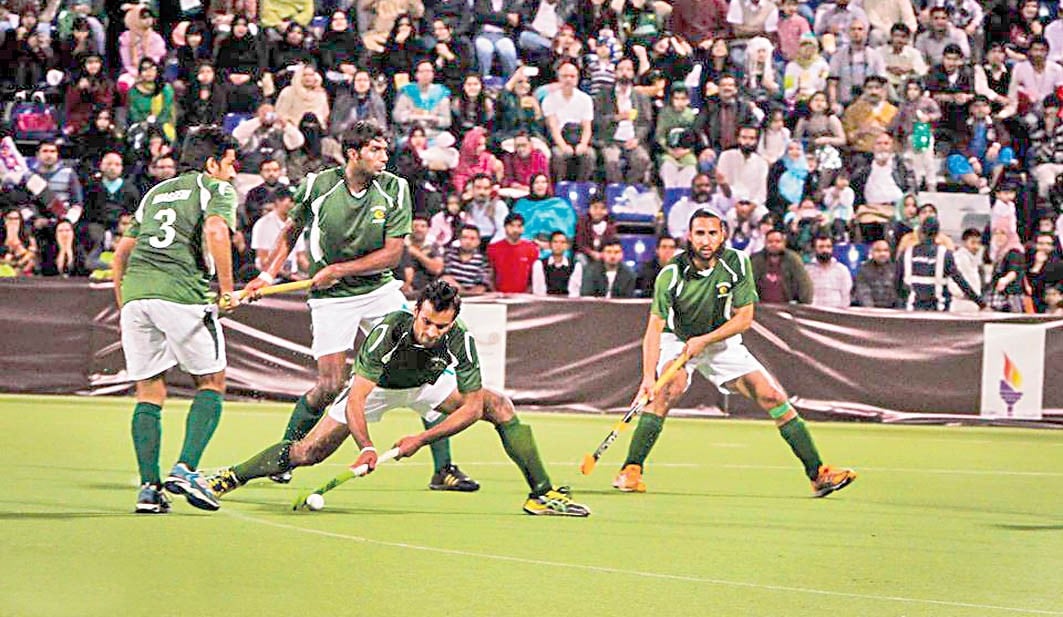
Pakistan must raise their game in order to beat top teams like South Korea and India if they are to defend their Asian Games title

Four years after winning what was their biggest hockey title in a long time, Pakistan have once again set their sights on the Asian Games gold medal.
In 2010, the venue was the Chinese city of Guangzhou where Pakistan recorded a memorable triumph to end their victory drought at the international level.
The 2014 Asian Games, which exploded into action in the South Korean city of Incheon last Friday, provide Pakistan an excellent opportunity to lift their sagging fortunes.
Pakistan have gone into the event without much international exposure as they were forced to miss recent tournaments due to a variety of reasons.
They failed to make the cut for this summer World Cup in Holland and were forced to miss the Commonwealth Games in Glasgow because of the fight within the sports officialdom.
They were unable to feature in a few other events because the "cash-starved Pakistan Hockey Federation (PHF)" did not have sufficient funds to send the team abroad.
But the Pakistani players should leave all those bitter memories and go all out to defend the prestigious title. If Pakistan win, they will claim a record ninth Asian gold. The Green-shirts have also won two silver and three bronze medals in 16 editions of the Asian Games, finishing outside the medals bracket only at the Asian Games in 2002 in the South Korean city of Busan.
A gold medal in Incheon will earn Pakistan direct ticket to Olympic Games 2016 in Rio de Janeiro.
The Pakistanis have been grouped with old foes India, China, Oman and Sri Lanka in pool B.
Hosts South Korea, Malaysia, Japan, Singapore and Bangladesh are bracketed together in pool A.
A tough challenge awaits the competing teams in Incheon as the hockey competition at the Asiad is being played under the new format introduced by the game’s governing body in a bid to make the game faster.
Four 15-minute quarters will replace the previous format of two 35-minute halves, putting extra pressure on coaches.
The new system introduced by the International Hockey Federation (FIH) has been tested in friendly matches and tournaments such as the Hockey India League, but it will be the first time in the international arena that this format will be used.
Former Olympian and now Pakistan coach Shahnaz Sheikh is confident that his charges will adapt to the new format. "Coaching, strategy and technical aspects will become very important because coaches will need to make substitution charts before the match so that the players understand who will come and who will go out and when," he said.
"The game will become much faster now," added Shahnaz, a member of Pakistan teams that won the World Cup in 1971 and the bronze medal at the Olympics in 1976.
"Hockey has been a 16-player game for some time now and I’d like to call the new format the ‘9-11 form’ of the game -- nine players attacking and all 11 falling back in defense," he said.
Shahnaz said he had been rolling through quick substitutions in practice games of four quarters.
"There was a practice game back home where I made 49 changes. That’s the kind of thing we’re likely to see in the coming days."
Pakistan captain Mohammad Imran is upbeat about his team’s chances in Incheon.
"We’ve trained with the aim of winning the gold medal," said Imran, who is one of the 10 surviving players from the squad that won the gold medal in Guangzhou 2010. "We may not have played enough against other teams this year, but we’ve made up by playing a lot of practice matches.
"Each team knows the pattern of other teams and the way they attack or defend. But we might just have an advantage over others because they may not have seen us enough," he said.
"On the other hand, we’ve studied South Korea’s and India’s matches at the World Cup and the Commonwealth Games."
Imran is fully aware that his players will have to raise their game to cope up with the fast format.
"The game is becoming faster and coaches have to change their plans every 15 minutes. India might have a slight advantage over us in this regard as they’ve played in the format in their (Hockey India) league," he said. "But at the same time, our training has centered around this aspect too," he added.
"I feel many teams have a chance of winning the gold. It’s not just India, Pakistan, South Korea and Malaysia. Even China and Japan have good teams and are capable of surprising."
Pakistan will take on fellow title aspirants India in what is seen as the match of the tournament on September 25 and Imran knows that his players need to be fully prepared for the high-voltage encounter. "An India-Pakistan match is always special, not only because people back home are looking forward to it but also because people around the world are following it," he said.